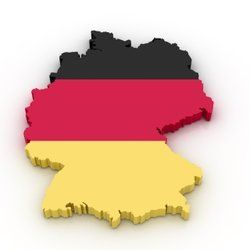German financing conditions for companies continue to be excellent, says the Ifo Institute in Munich. German firms continue to have easy access to loans.
The Credit Constraint Indicator for the country’s industry and trade declined to 17.9% in August, from 18.2% in July. A falling number signals improvement.
For sixteen consecutive months the Credit Constraint Indicator has remained below 20%.
Credit constraints in German manufacturing increased by 0.2 of a percentage point to 16.4%.
Larger companies happier than smaller ones
For the larger businesses (more than 249 workers), credit constraint (12.8%) is at its lowest level since 2007.
Small and medium-sized businesses, however, are reporting a completely different situation. For them, seeking loans continues to be problematic.
The credit constraint indicator for construction fell to a record low of 20.9%.
For the retail trade, the indicator weakened marginally and currently stands at 18.2%.
Share of companies indicating that access to credit is restrictive. (Source: Ifo Institute)
What is the credit constraint indicator?
Ifo gatheres data from 4,000 companies in industry and trade from the manufacturing, wholesaling and retailing sectors.
The businesses are asked “How would you assess the current willingness of banks to extend credit to businesses?”
They are given three choices for their response:
- accommodating,
- normal,
- restrictive.
Results for each sector are then compared to credit volume in 2005.
(Source: Ifo Business Survey)
Negative data from Germany
August has been a month of negative economic data coming out of Germany.
In its second quarter, German GDP contracted by 0.2% compared to Q1. Destatis, the country’s statistical office, reported that “The German economy is losing momentum.” This was the first time the economy shrank in over a year.
One week ago, the Ifo Institute reported that the German Business Climate Index for trade and industry declined in August to 106.3, compared to 108 in July.
In the second week of August, The Conference Board published Germany’s LEI (Leading Economic Index) for June, showing that it had declined by 0.1%, after rising in April and May.



